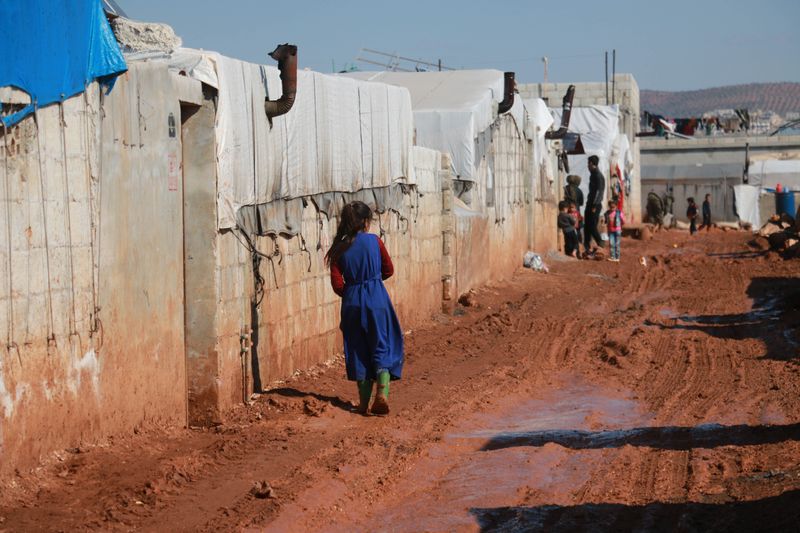Government’s Rwanda Asylum Plans Ruled Unlawful, Further Evidence of Flawed Illegal Migration Bill
The recent ruling by the Court of Appeal that the UK government’s plans to remove asylum seekers to Rwanda are unlawful has added further weight to the argument that the Illegal Migration Bill is deeply flawed. The court recognized the risks faced by individuals who could be returned to their home countries from Rwanda where they may face persecution. This ruling calls into question the entire Illegal Migration Bill and highlights the government’s lack of secure removals agreements.
The Court’s Decision and Implications
On Thursday, June 29th, the Court of Appeal reversed the High Court’s decision that Rwanda was a safe third country. The court acknowledged the real danger of returning individuals from Rwanda to their home countries where they may face persecution. Unless the deficiencies in Rwanda‘s asylum processes are addressed, any removals of asylum seekers to Rwanda would be unlawful.
Law Society president Lubna Shuja expressed satisfaction with the court’s recognition of the risks posed by the government’s Rwanda removal plans. She also highlighted the previous concerns raised by the Law Society regarding the compatibility of the Rwanda policy with international conventions such as the Refugee Convention and the European Convention on Human Rights. The ruling should lead to questions surrounding the effectiveness and viability of the Illegal Migration Bill as a whole.
The government’s only secured removals agreement thus far is with Rwanda, which has now been ruled unlawful. This means that at the proposed time for the bill to come into force, there will not be any removals agreements in place. Furthermore, Rwanda alone would not be able to accommodate the significant number of people scheduled for removal. As a result, a backlog of individuals due to be removed under the Illegal Migration Bill will accumulate, leaving them in a state of uncertainty and potentially detained or housed indefinitely at great cost to the taxpayer.
The Need for Viable Migration Policies
This ruling underscores the importance of developing effective and viable migration policies that prioritize the protection of individuals’ rights. The government’s focus on removals and restrictive measures overlooks the complexities and humanitarian considerations of migration. It is crucial to strike a balance between effectively managing migration and upholding human rights.
The compatibility of the proposed Illegal Migration Bill with international conventions, such as the Refugee Convention and the European Convention on Human Rights, should be thoroughly examined. Any legislation that disregards these conventions or fails to adequately protect individuals will only contribute to an inefficient and ineffective immigration system.
Editorial: The Flawed Approach to Migration
The recent ruling against the government’s Rwanda asylum plans exposes the flawed approach to migration policy in the UK. The focus on removals and stringent measures fails to consider the fundamental principles of human rights and the complexities of migration. The Illegal Migration Bill, in its current form, is an example of misguided legislation that prioritizes political rhetoric over practical solutions.
Migration is not a one-size-fits-all issue, and attempting to address it with simplistic, blanket policies is inherently flawed. The asylum process should prioritize the safety and well-being of individuals, ensuring that those in need of protection are given a fair chance to present their case and adequately assessed. Removals agreements must be based on a thorough assessment of countries’ asylum processes and their adherence to international standards.
The government’s focus on removals, particularly to countries like Rwanda, raises concerns about human rights violations and the potential harm faced by individuals upon their return. The Court of Appeal’s ruling reflects these concerns and highlights the need for a more nuanced and humane approach to migration policy.
A Call for Comprehensive Reform
The flaws in the Illegal Migration Bill and the government’s approach to migration underscore the urgent need for comprehensive reform. Migration policies should prioritize the protection of individuals, respect international conventions, and take into account the complex realities of migration.
A key component of comprehensive reform should be a commitment to improving the asylum process, including adequate legal representation for asylum seekers and a fair and efficient assessment system. Enhancing support services and ensuring access to justice for migrants will contribute to a more just and effective migration system.
Additionally, the government should strengthen efforts to address the root causes of migration, such as conflict, poverty, and climate change. This includes working with international partners to create sustainable development initiatives and addressing the global inequities that force individuals to migrate in search of safety and better opportunities.
Advice: Prioritizing Human Rights in Migration Policy
In light of the ruling against the government’s Rwanda asylum plans and the flaws in the Illegal Migration Bill, it is essential to prioritize human rights in the formulation of migration policy. The principles of fairness, protection, and dignity should guide policy decisions to ensure the well-being of individuals and uphold international obligations.
When developing migration policies, policymakers should consider the following:
1. Respect international conventions and standards:
Ensure that migration policies adhere to international conventions, such as the Refugee Convention and the European Convention on Human Rights. Any legislation or agreements should align with these standards and protect the rights of asylum seekers and refugees.
2. Focus on a fair and efficient asylum process:
Develop an asylum process that is fair, efficient, and ensures access to legal representation for asylum seekers. This includes providing sufficient resources and support to assess claims promptly and accurately.
3. Address root causes of migration:
Recognize the underlying causes of migration, such as conflict, poverty, and climate change, and work toward addressing these issues. Investing in sustainable development, poverty reduction, and climate resilience can help mitigate forced migration.
4. Enhance support services and access to justice:
Improve support services for migrants, including access to healthcare, education, and social services. Ensuring access to justice for migrants is crucial, including legal aid and appropriate representation throughout the asylum and immigration processes.
By prioritizing human rights and taking a comprehensive approach to migration, governments can create policies that are both effective and compassionate. Migration is a complex issue that requires nuanced solutions rooted in respect for human dignity.

<< photo by Dariusz Grosa >>
The image is for illustrative purposes only and does not depict the actual situation.
You might want to read !
- Unmasking Aspartame: The New Call for Transparency in Diet Soft Drinks
- David Goodwillie: Sorrento FC Drops Contract, Sparks Debate on Player Accountability
- “Archie Battersbee’s Mother Emphasizes Significance of BBC Best Interests Program”
- Colleen Ballinger Responds to Grooming Allegations Through Musical Artistry
- “Examining David Goodwillie’s Controversial Return to Professional Football”
- “Transformers: Rise of the Beasts” Review – Exploring the Grease and Glitz of a New Era of Transformers
- The Battle of the Titans: Poland Shocks Germany with a 1-0 Victory




